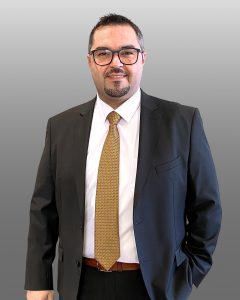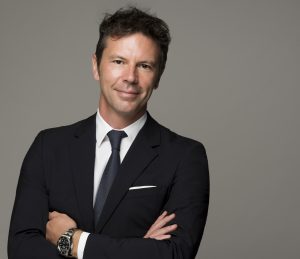International powerhouse brands turn to inaugural GITEX Africa 2023 as launchpad to scale operations in the world’s next biggest digital economy
Global tech pioneers and innovators are preparing to supercharge double-digit business growth across Africa, as they eagerly anticipate the debut of the continent’s largest and most inclusive tech and start-up event in Marrakech, Morocco.
GITEX Africa will open doors for the first time from 31 May-2 June 2023, welcoming 500 exhibitors and 400 start-ups from 95 countries, with regional and international companies exuberant about the potential of the world’s rising tech continent, and the opportunities amplified by Africa’s ongoing Digital Transformation Strategy.
Among those spearheading the charge into African tech’s showpiece event is Japanese headquartered Epson; American giants Autodesk, Honeywell, Hewlett Packard, Dell, ESRi, Nutanix, Cisco and Shure; Lenovo, Huawei, and TP Link from China; along with DP World and the Technology Innovation Institute from the UAE.
With the African Union’s bold mission to unify the continent into a secure Digital Single Market by 2030, GITEX Africa exhibitors waxed lyrical about the proliferation of trends shaping the continent’s tech ecosystem, from increased internet connectivity and a rampant start-up scene, to the rise of AI and Machine Learning and a flourishing fintech sector.
These growth drivers span multiple verticals, from government services or sustainable energy and finance, to healthcare, agriculture, telecoms and education, fuelling an African tech market that, according to analysts, is on track to scale from US$115 billion in 2021 to US$712 billion by 2050.
Epson, the international technology company with 11 offices across the region, and nearly US$9 billion in global revenue in 2022, is among those looking to accelerate its intra-continental reach via GITEX Africa 2023. Neil Colquhoun, Vice President for Epson CISMETA, said a third of its MEA revenue is generated in Africa, with robust plans to fast-track regional growth.
“We have a long-term strategic vision to grow the MEA market,” said Colquhoun. “We’re committed to doubling our business from 2018 to 2025, and we’re well on track to achieving that. Ideally, we’ll try and double it again up to 2030, and a huge amount of that growth is going to be in Africa.”
Colquhoun said Epson’s core focus is on sustainability, with the company investing 100 billion yen (US$760 million) every year on developing sustainable technologies, whether for printers, projectors, scanners, smart glasses or wearable technology.
“We believe we can improve the lives of Africans and businesses,” he added. “Our printing technology is heat free for example, which equates to 83% reduction in power consumption which is critical in Africa where there are energy resource challenges. At GITEX Africa, we’ll show our entire range applicable to multiple verticals, from education, banking and healthcare, to textile manufacturing, retail, government and commercial.”
Amplifying Africa’s digital opportunity through advanced IT
Africa’s rapidly expanding digital economy is amplified by an increasingly educated and growing middle class, intensifying the demand for new technologies in a continent where 40 percent of the population is below the age of 15.
UAE-headquartered Mindware Group, and Datwyler IT Infra, based in Switzerland, will shine the spotlight on their IT/OT infrastructure solutions, software and services at GITEX Africa 2023, with both investing, and tapping into the vast prospects of the African market.
“Africa is a growing market for the IT industry, with increasing demand for technology solutions and services in different sectors such as agriculture, oil & gas, mining, banking & finance, healthcare, telecommunications and education,” commented Toni Azzi, Mindware Group’s General Manager.
“Africa is also a source of innovation and talent, with many companies investing in the region to meet the needs of the local market. While the IT industry in Africa is still in its early stages compared to more mature markets, it is poised for significant growth in the coming years and is becoming increasingly important for the global IT business.”
Asem Shadid, Managing Director for Datwyler IT Infra, MEA, added that AI, ML, FinTech, HealthTech, blockchain, and renewable energy are the hot topics shaping Africa’s tech scene, creating ample opportunities for companies such as Datwyler to venture and capitalise on the continent’s growth potential.
“As an innovative Swiss manufacturer with over 100 years’ experience and expertise, we continue to invest on our R&D to stay at the forefront of technological developments and innovations” said Shadid. “We are confident we can add value and bring significant impact on the development and growth of the Africa’s technology sector.
“Africa is a large, diverse continent, with a significant increase in technology adoption and entrepreneurship. African governments and organisations are uniting their digital transformation aspirations to modernise infrastructure and automate operations, and we foresee many opportunities for Datwyler since there’s a growing demand for technology and increasing global investment funds.”
Morocco – elevating Africa’s tech revolution
GITEX Africa 2023 is held under the High Patronage of His Majesty King Mohammed VI of the Kingdom of Morocco, and hosted by the Digital Development Agency (ADD), a strategic public entity leading the Moroccan government’s digital transformation agenda under the authority of the Moroccan Ministry of Digital Transition and Administration Reform.
The three-day event is organised by KAOUN International, the overseas events organising company of Dubai World Trade Centre (DWTC), which organises GITEX Global, the world’s largest tech show, in Dubai UAE.
Major players from Morocco’s tech landscape have signed on for GITEX Africa, in-line with the North African country’s unifying economic mission, where 60 percent of its foreign investment is directed towards Africa.
AMDIE (The Moroccan Agency for Investment and Export Development), MTDS, Morocco’s first internet service provider, and Ribatis, a leading provider of e-Gov platforms for African public administrations, are among the Moroccan exhibitors with a joint mission to elevate Africa’s ‘booming’ tech revolution.
 “Africa’s tech ecosystem is booming, with the focus on digital transformation surging across the continent,” commented Mohamed Fayçal Benachou, CEO of Ribatis, which will highlight at GITEX Africa its ‘Karaz Single Window’ e-Gov platform, the first low code/no code digital platform dedicated to African governments.
“Africa’s tech ecosystem is booming, with the focus on digital transformation surging across the continent,” commented Mohamed Fayçal Benachou, CEO of Ribatis, which will highlight at GITEX Africa its ‘Karaz Single Window’ e-Gov platform, the first low code/no code digital platform dedicated to African governments.
“Ribatis belongs to Africa, and we believe in the continent’s rich potential, offering many opportunities to build large, profitable businesses. The African population is young, fast growing, and increasingly urbanised, while rapid technology adoption makes the continent a fertile arena for innovation. GITEX Africa 2023 presents an incredible opportunity to highlight Africa’s potential to the world.”
World’s largest start-up event in Africa
GITEX Africa 2023 will feature North Star Africa, converging more than 400 start-ups and 250-plus investors from across the globe to extend engagements, build connections, and scale imaginations with key stakeholders in the tech ecosystem.
A power-packed three-day conference programme will meanwhile be spearheaded by the ONE Africa Digital Summit and the GITEX Africa CEO Forum, with dedicated tracks covering fintech, digital cities, cybersecurity, coding, youth development, energy, healthcare, and agriculture.
More information is available at www.gitexafrica.com




